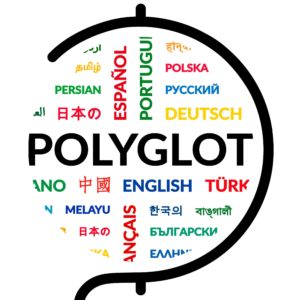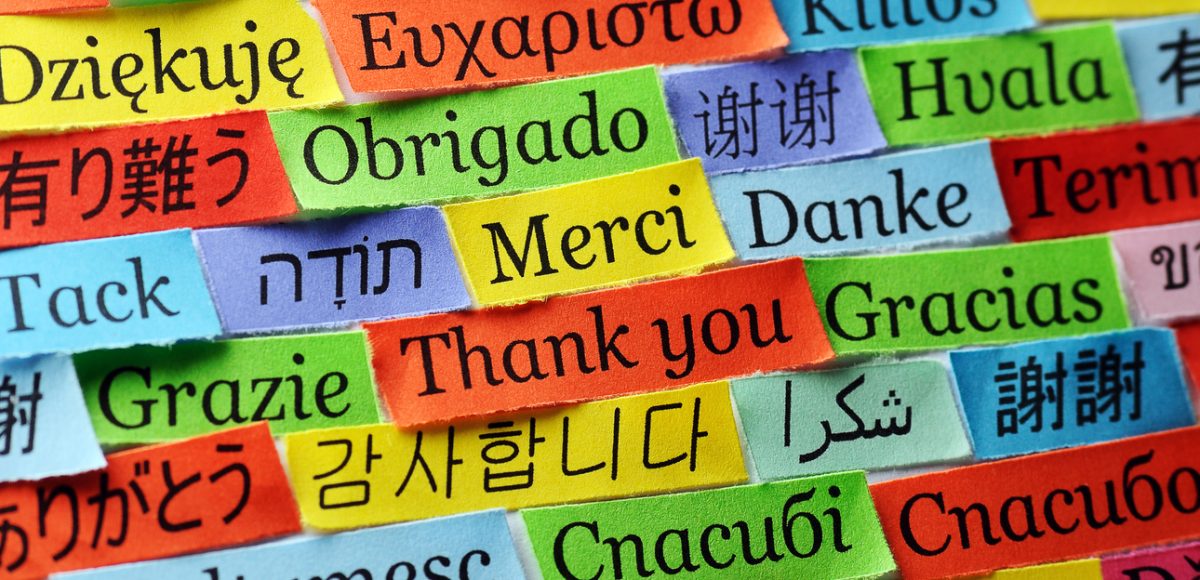Fantastic polyglots and where to find them – Cam Worsley
One question: are you a time keeper or a player?
Another question: are you wanting to learn a language, or are you trying to learn a language?
Have you ever noticed when you ask someone why they think they can’t learn a language, they’ll tell you things like, “I just don’t have the language gene.” I find that anytime I ask someone this, they tell me how long they’ve been doing the language, asserting, “I’ve been doing German for seven years, but I can’t even ask someone what they’re doing!” – I call these people time keepers.
How many of you have already forgotten your Passé composé lesson with Mrs Routledge last week? I know a lot of my time in GCSE, I would forget nearly everything I had learnt in German, so you’re not alone. But why is this? Why can’t we just keep the vocabulary on ‘die Umwelt’ in our heads? This was something that always perplexed me.
But this shouldn’t be the case, it’s not that you bad at the language, it’s just you’re not doing the right things.
But first, there’s one thing we need to set straight before we get started…
Are you actually bothered to learn a language? Be honest with yourself. Are you doing the language because you want to, or because you have to? Languages aren’t for everyone. When starting GCSE, the worst thing I thought of taking was French. J’ai détesté le français. And I just couldn’t be bothered, I never thought I’d be the person to want to learn as many languages as possible – but now, j’adore le français! And there was no reason for this; I didn’t have an epiphany of a polyglot future; I didn’t wake up with the burning desire to learn a language, nor did I feel the need to.
When I heard my bilingual friends speak to other people in a foreign language, I felt pretty jealous! I wanted to be able to do that! I began to love the idea of meeting someone who would speak to me in English and then reply in their own language and impress them. This seems egotistical, but it’s true! So basically, the moral of this digression, is that you need the will to actually learn a new language.

You’re also going to need is patience. This isn’t an over-night thing, nor is it a long and dubious process. But if you think you’re going to be talking with a Parisian accent purely because you’ve seen a couple films with Marion Cotillard in, then sorry to break it to you, but it’s going to be a bit harder than that.
Another way of bettering your languages, and much to the dismay of language teachers across our school, is to take shortcuts. The best thing about these shortcuts, you can apply them to any language, and this keeps you interested and feels like you’re actually making progress, to then go on and expand your language.
Number 1: analyse the similarities – as speakers of English, we already know so much about other languages, given the fact that our language itself, essentially, is a Germanic language with a wealth of influences and vocabulary from a multitude of different languages as diverse as Latin, Hebrew or Hindi.
Doing this will develop patterns in the language and also help us to guess the meaning and formation of words and things that we don’t yet know.
Number 2: keep it simple – at first site you might think you’re learning a language that doesn’t have that much in common with our own, but by focusing on easy elements, we will be able to learn it much more quickly, because every language has easy bits to it.
Number 3: keep it relevant – I doubt for a fact you know every single word in the oxford dictionary, so don’t threat at every word you don’t know in the other language. Just keep it relevant to right now.
Now what if I told you, doing just 30 minutes every day will guarantee you fluency? Whether it be 10 in the morning, evening and night or 30 minutes in one go. Learning easier, chopped down pieces in regular periods is A) a lot easier than a mountain load of grammar and B) a lot more effective and fun. Because if you just do it once a week or once a fortnight, chances are you would’ve forgotten all of it already. The goal therefore, is to fit language learning into our daily routine and not the other way around. And in doing this, there is no reason you couldn’t get by in your new language within one month.
I believe there are three golden rules I know always are a sure-fire way to easily learning a language.
1) Live the language- read it, write it, dream it, sing in it even. I always sing Traum or Comme des enfants to myself, giving my learning rhythm and joy.
2) Make mistakes – you’ll never learn without, make as many as you want, it’s the only way we learn. As children we are expected to make mistakes, but as adults they are apprehensive and feel vulnerable. Admitting they don’t know everything there is to know about this new language will not prevent us from learning it. Furthermore, it will actually give us the freedom to go on and to master it.
3) Make it fun – you will never learn unless you enjoy it. Grammar isn’t always fun, and can be boring, but remember, whatever you can do in English, you can do in any other language. And by making this process entertaining, you’re helping yourself stay motivated and increase the likely of success. Make everyone involved, a friendly competition makes you more motivated, we all know we love a bit of kahoot!















1 comment